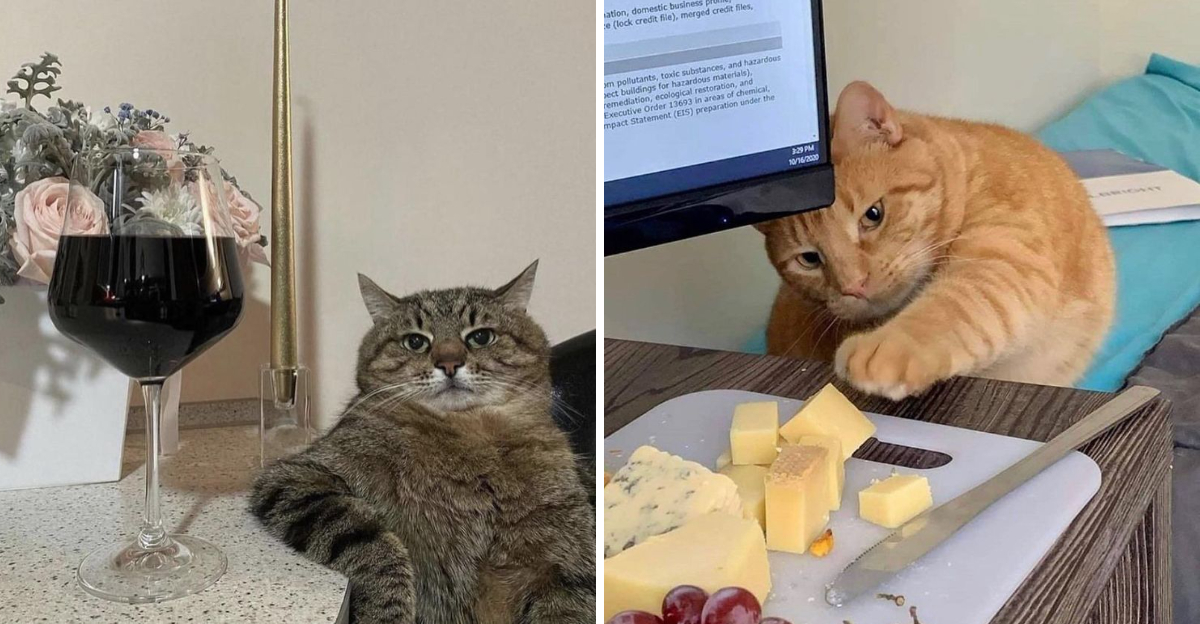Cats are often considered as part of the family, and just like any family member, their health is paramount.
However, what many cat owners may not realize is that certain common foods can be extremely harmful to feline friends.
The following list highlights eleven specific items that should never be fed to cats, ensuring their safety and well-being.
1. Chocolate
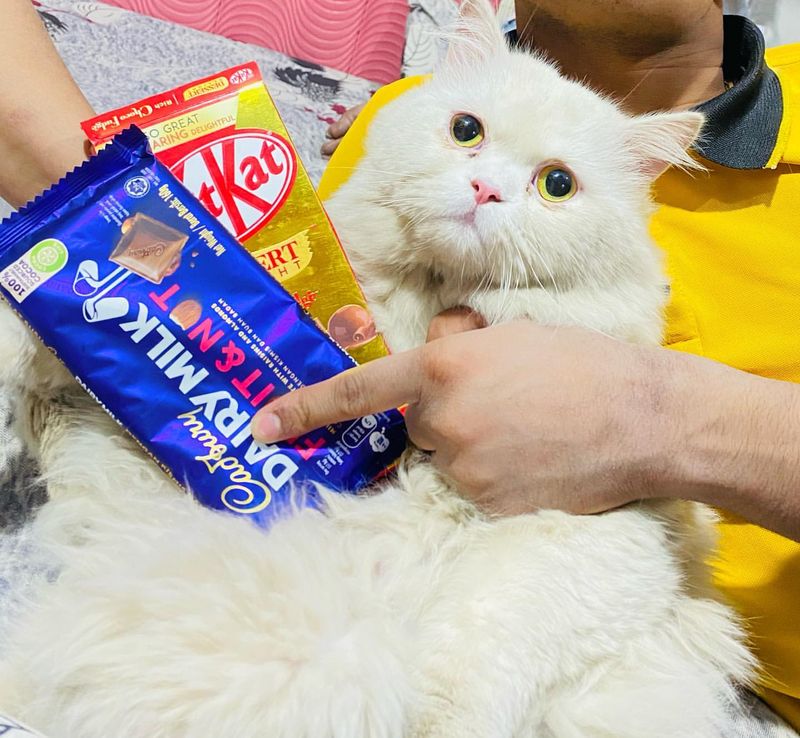
Starting with something many people love, chocolate is a treat best kept away from your feline friends. Theobromine and caffeine, found in chocolate, are toxic to cats and can cause a range of health issues. Even small quantities may lead to vomiting, diarrhea, and even more severe symptoms like seizures.
Cats are naturally curious, so it’s crucial to store chocolate safely out of their reach. But why is chocolate so toxic?
Unlike humans, cats cannot metabolize theobromine effectively, leading to toxic accumulation in their system. Dark chocolate and unsweetened baking chocolate are particularly dangerous due to higher theobromine concentrations.
Always ensure that chocolate is not left unattended where a cat might investigate. Should your cat consume chocolate, immediate veterinary attention is necessary. The faster the treatment, the better the chances of preventing long-term harm.
2. Onions And Garlic
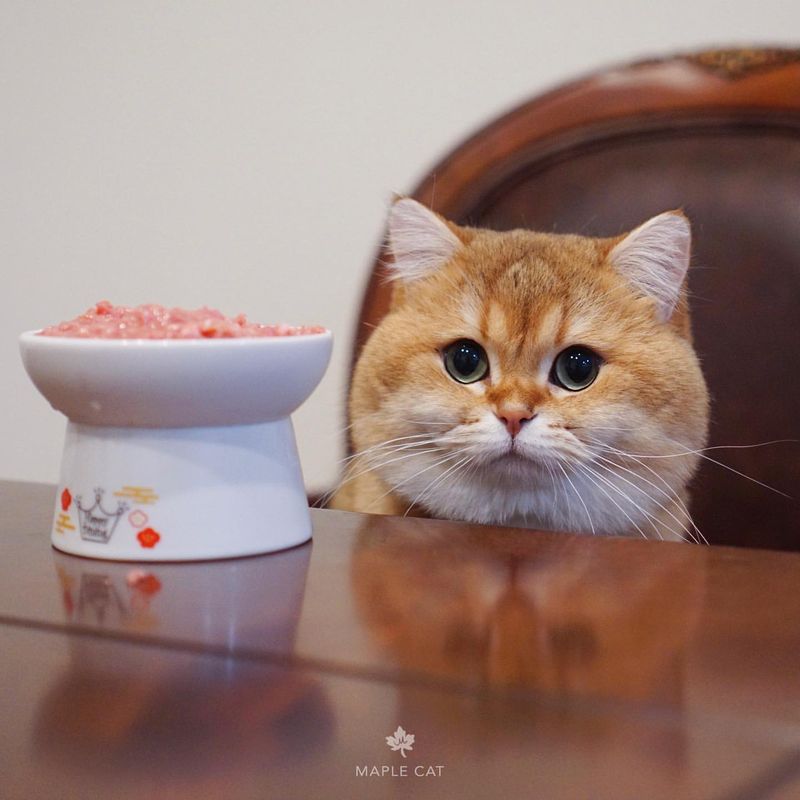
When preparing meals, onions and garlic might add flavor, but they shouldn’t be part of your cat’s diet. These aromatic vegetables contain compounds that can damage your cat’s red blood cells, leading to anemia.
Even small amounts, whether raw, cooked, or powdered, can have harmful effects on feline health. Anemia in cats can manifest as lethargy, weakness, and reduced appetite, so it’s vital to recognize these signs early.
Many cat owners unknowingly expose their pets to these ingredients through leftovers or baby foods containing onion powder. To keep your cat safe, always check the ingredients of foods before sharing them.
If accidental ingestion occurs, contact a veterinarian promptly. Remember, preventive measures can save your cat from unnecessary suffering and health complications.
3. Alcohol
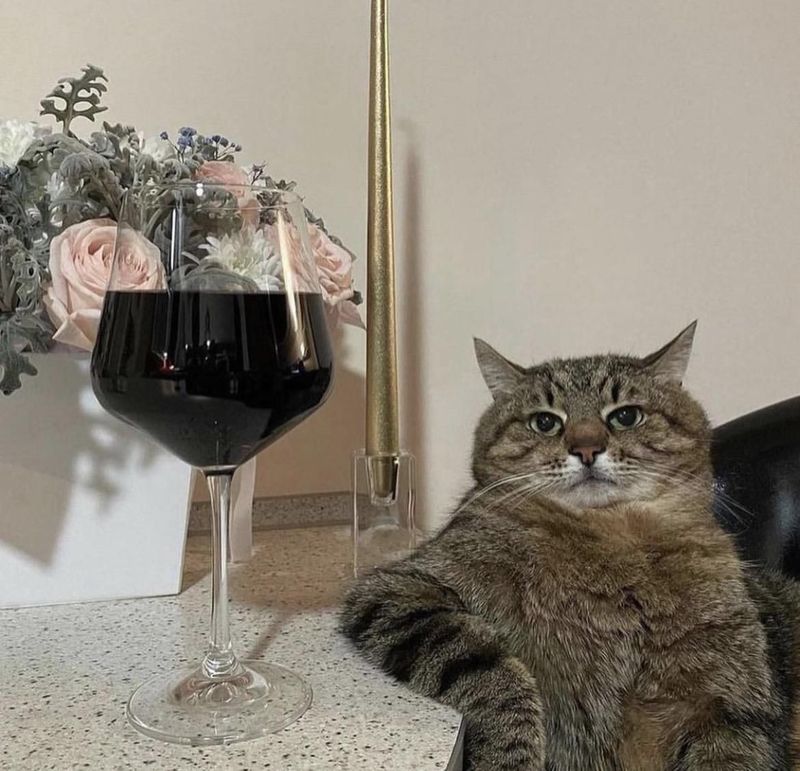
Alcohol consumption isn’t just harmful to humans; it’s downright dangerous for cats. Even a small amount can have severe effects due to their low tolerance. Symptoms of alcohol poisoning in cats include vomiting, disorientation, breathing difficulties, and in severe cases, coma or death.
It might be tempting to offer your pet a sip of your drink as a joke, but the repercussions are no laughing matter. Keep alcoholic beverages secured and never leave them unattended around pets. Understanding the risks associated with alcohol is key to preventing accidents.
Should your cat accidentally ingest alcohol, seek veterinary care immediately. Responsible pet ownership means being aware of potential hazards and taking steps to avoid them.
4. Caffeine
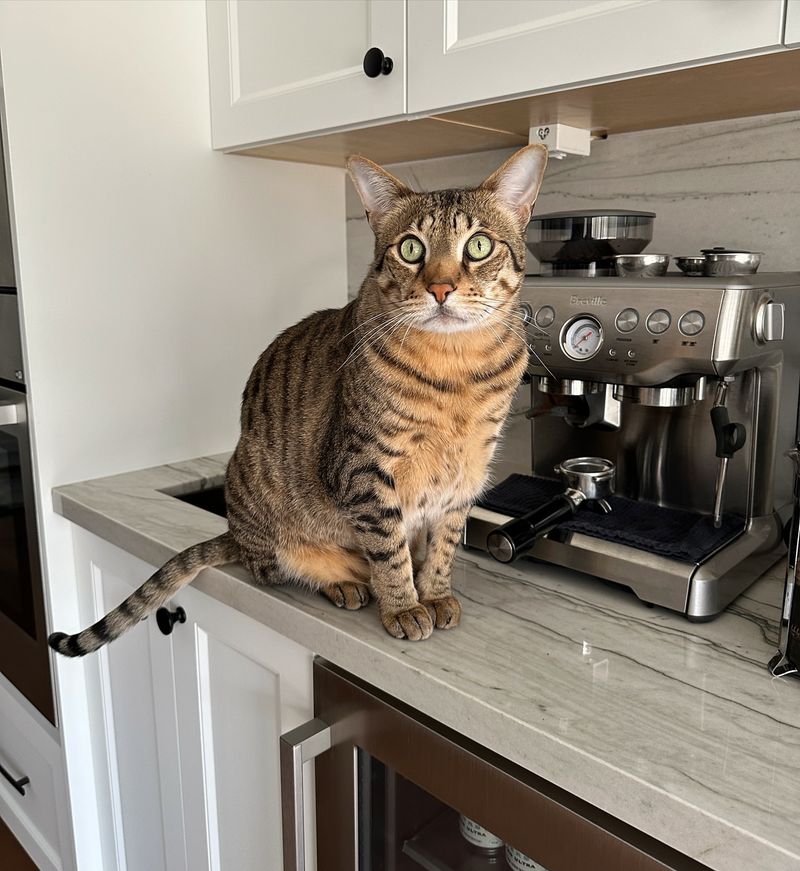
For many, caffeine is a morning staple, but for cats, it’s a dangerous substance. Caffeine can lead to hyperactivity, increased heart rate, and tremors in cats. Their small bodies cannot handle the stimulant, making it vital to keep caffeinated products out of their reach.
Cats are naturally inquisitive animals, often exploring human foods and drinks. Ensure that your caffeinated beverages are always kept in a safe location where your cat cannot reach them. If a cat does consume caffeine, the signs may include restlessness and rapid breathing.
Veterinary intervention should be sought to manage symptoms and ensure recovery. Awareness and caution can prevent caffeine-related health issues in your pet.
5. Grapes And Raisins
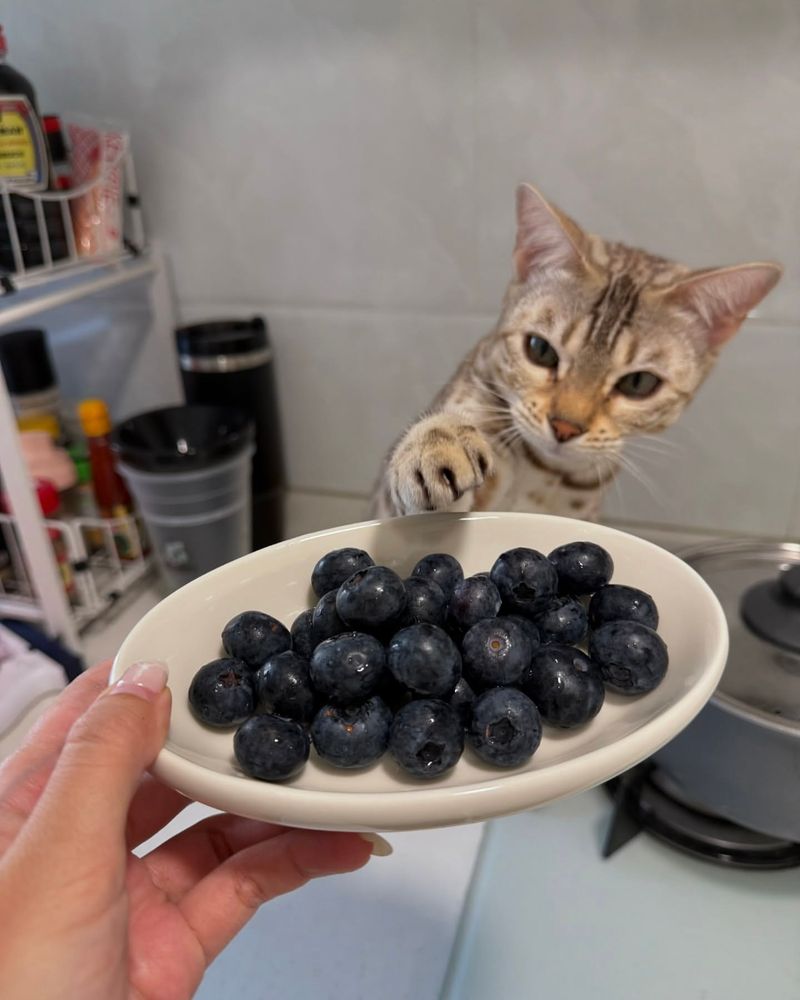
Cats may not be naturally drawn to grapes or raisins, but these fruits pose a significant risk. Ingesting them can lead to acute kidney failure in felines, a potentially life-threatening condition. The exact cause of toxicity remains unknown, making it even more crucial to avoid offering these fruits.
Be mindful of foods that may unknowingly contain grapes or raisins, such as baked goods or trail mix. Knowing what your cat has access to is essential in preventing accidental ingestion. Monitor your cat for symptoms like vomiting or lethargy if you suspect they’ve eaten grapes or raisins.
Immediate veterinary care is crucial for the best prognosis. Knowledge and vigilance can protect your beloved pet from severe health issues.
6. Raw Eggs
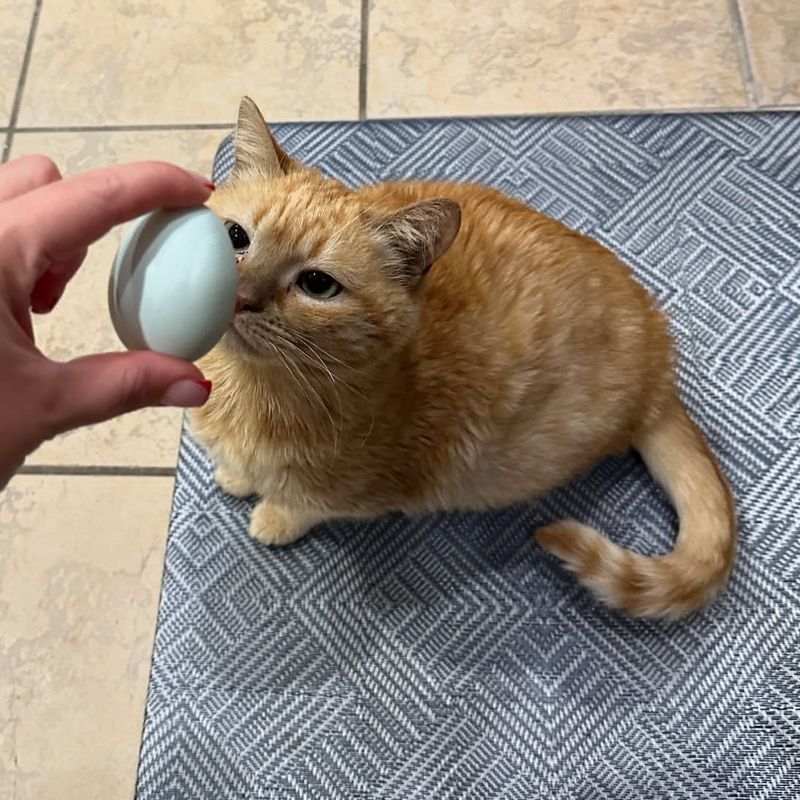
While some may promote raw diets for pets, raw eggs are a risky choice. They carry the potential for salmonella or E. coli infection, which can affect both cats and humans. Additionally, raw egg whites contain avidin, a protein that hinders the absorption of biotin, an essential B vitamin.
Biotin deficiency can lead to skin and coat problems, affecting your cat’s overall appearance and health. Cooked eggs, however, are a safer alternative, providing protein without the associated risks.
Always prioritize food safety by ensuring any eggs given to your cat are thoroughly cooked. This simple step can prevent health complications and promote your cat’s well-being. Recognizing food dangers is part of responsible pet care.
7. Bones
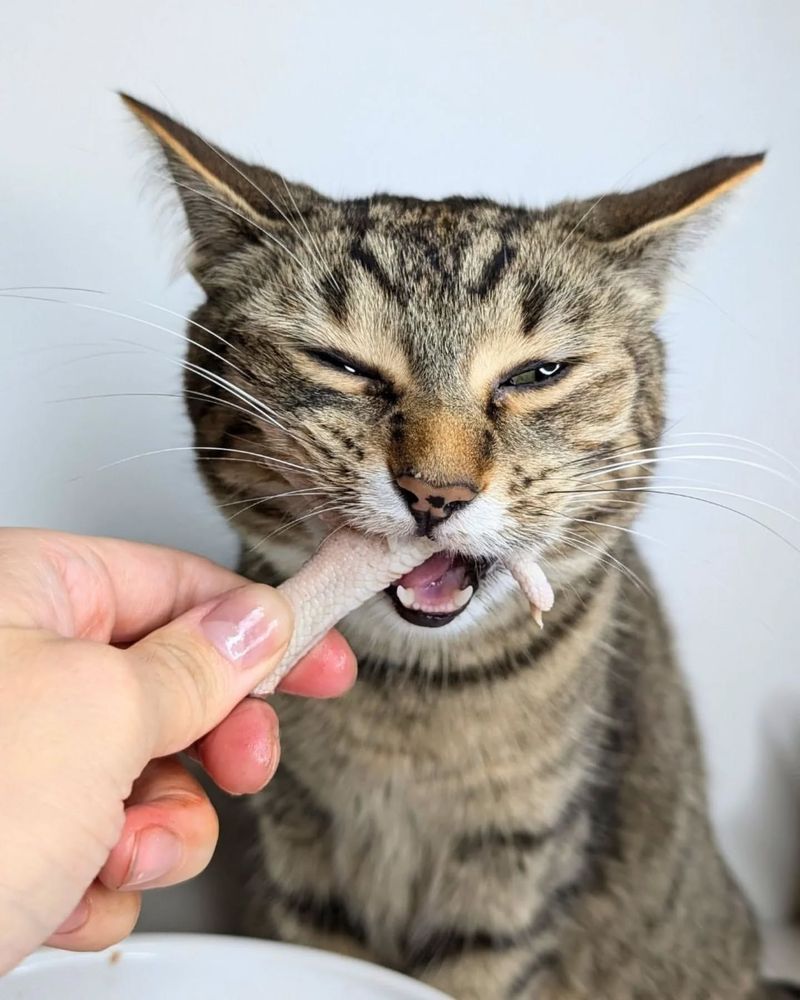
Many believe that bones are natural for animals, but for cats, they pose serious risks. Cooked bones can splinter easily, leading to obstructions or tears in your cat’s digestive tract. Raw bones aren’t much safer due to potential contamination with harmful bacteria.
Cats may be enticed by the aroma or texture, but the dangers outweigh any perceived benefits. If you want to provide similar satisfaction, consider safe alternatives like commercial dental treats or toys. Handling emergencies related to bone consumption can be stressful and costly.
Prevention is the best approach. Always dispose of bones carefully, and avoid giving them to your cat entirely.
8. Tuna

Tuna is often a favorite among cats, yet it should be fed sparingly. While tuna is high in protein, it lacks essential nutrients that cats need, such as taurine. Over time, a diet high in tuna can lead to malnutrition and a condition known as steatitis, or yellow fat disease.
Cats can develop a taste for tuna, leading to picky eating habits and reluctance to consume balanced cat food. It’s crucial to balance their diet to ensure they receive all necessary nutrients. If you choose to feed tuna, make it an occasional treat rather than a dietary staple.
Opt for tuna formulated for cats, which includes additional nutrients. A well-rounded diet will support your cat’s health and happiness. Remember that mindful feeding is key to a long, healthy life for your pet.
9. Xylitol
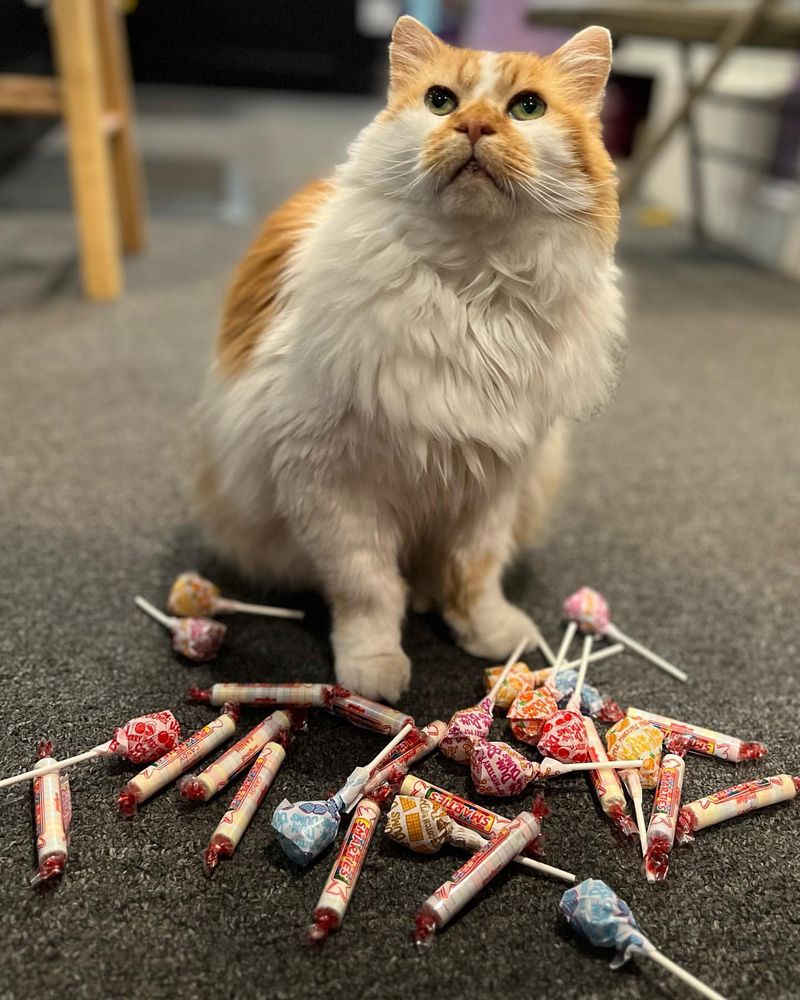
Xylitol, a common sugar substitute, is extremely toxic to cats. Found in sugar-free gum, candies, and some baked goods, it can cause a rapid insulin release, leading to hypoglycemia. Symptoms may include vomiting, loss of coordination, and seizures.
Cats don’t typically consume human sweets, but accidental ingestion can occur, especially with curious or playful cats. Always keep products containing xylitol securely stored and out of your pet’s reach. In cases of suspected ingestion, seek veterinary care immediately.
Quick response can be life-saving. Pet owners should be well-informed about household items that pose risks to their animals.
10. Milk And Dairy Products
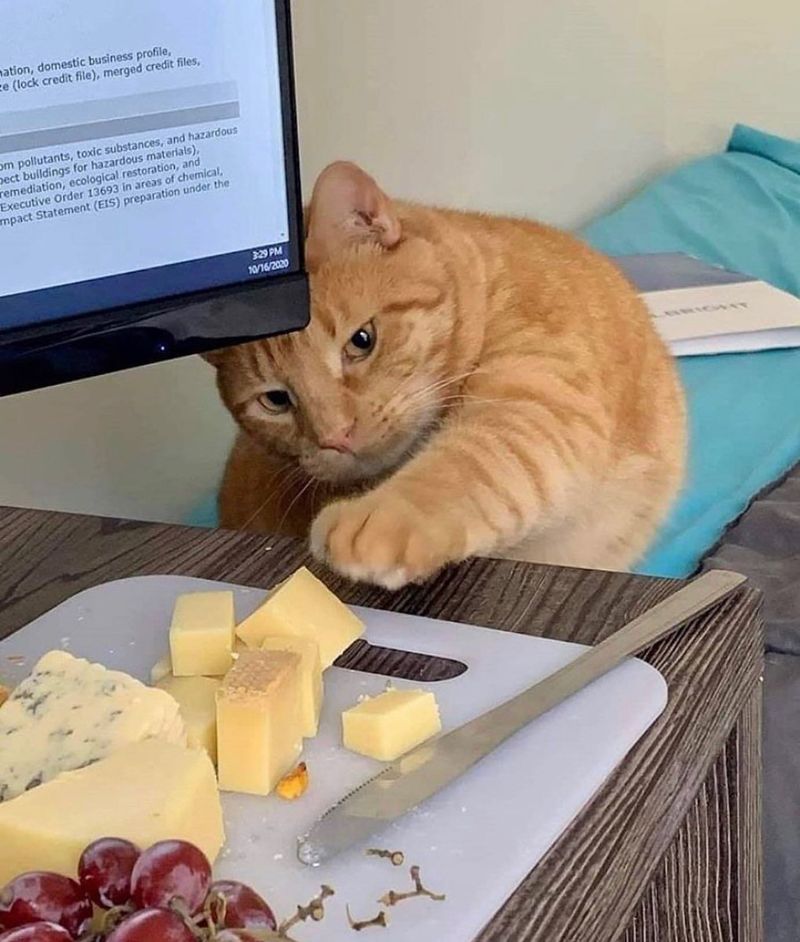
Though many picture cats blissfully lapping up milk, most adult cats are lactose intolerant. Consumption of milk or dairy products can lead to digestive upset, including diarrhea and stomach cramps. Cats lack sufficient lactase, the enzyme needed to digest lactose found in milk.
Providing water is a better hydration option, and specially formulated cat milk treats exist for those wanting to indulge their pets. Be observant of any adverse reactions if dairy is consumed accidentally. Understanding feline dietary needs helps prevent avoidable discomfort.
Avoid offering regular dairy and opt for safer alternatives to keep your cat healthy and content. Responsible choices ensure your pet’s dietary needs are met without complications.
11. Fat Trimmings
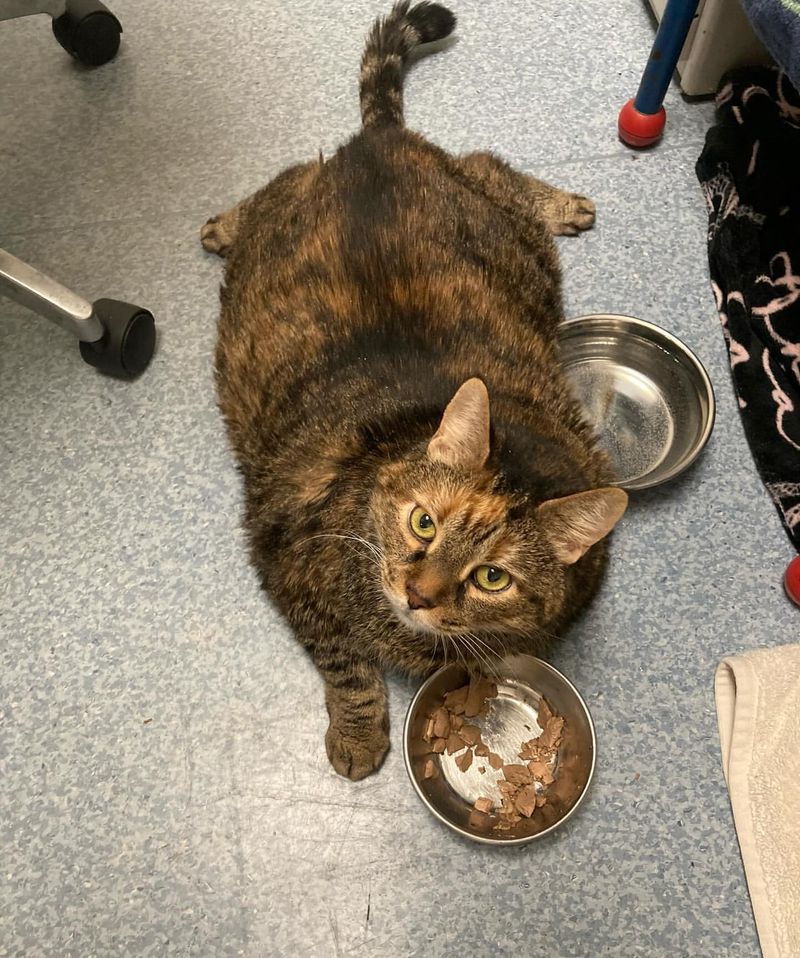
Cats are obligate carnivores, but feeding them fat trimmings from meat is a recipe for trouble. These trimmings can cause digestive issues, including pancreatitis, a painful and potentially serious condition. Raw fat can also carry the risk of bacterial infection.
Ensure that your cat’s diet includes balanced cat food rather than leftovers from human meals. Commercial cat foods are formulated to provide all necessary nutrients without the risks associated with raw fat. In case of suspected pancreatitis, prompt veterinary care is essential.
Symptoms may include vomiting, abdominal pain, and lethargy. Responsible feeding practices help prevent such health issues.

